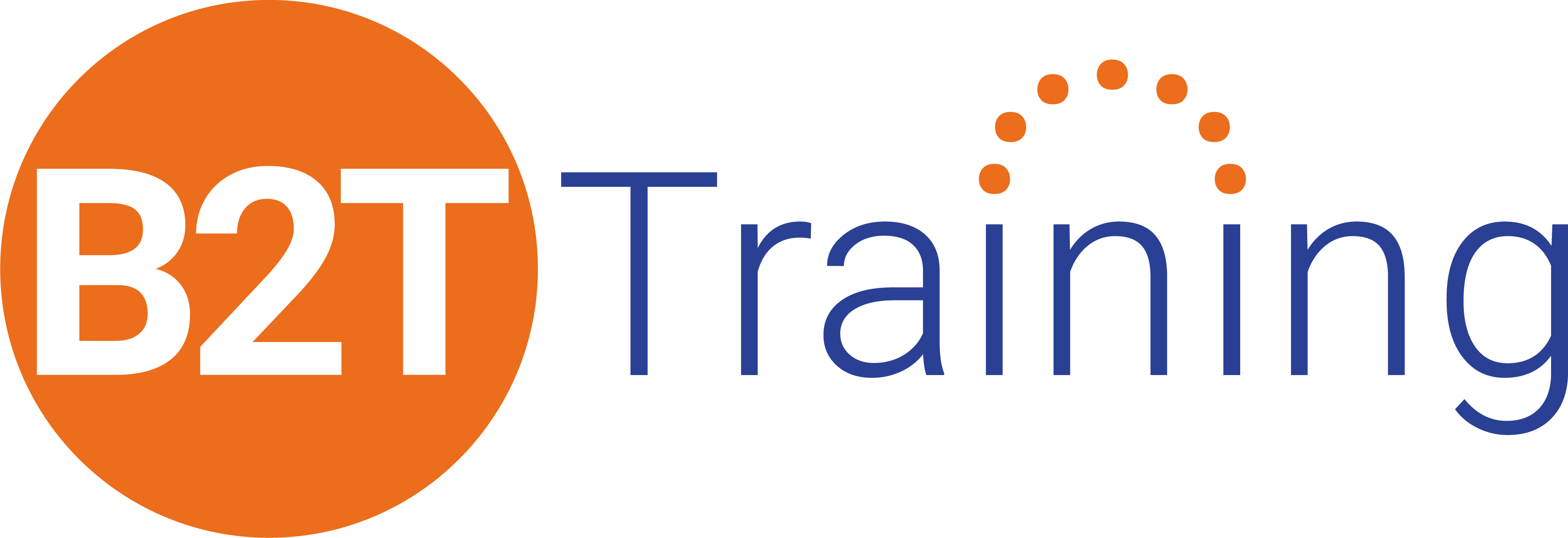I bet we share some of the same experiences with bad communication. I bet you’ve been in a meeting for a project that you have been working on closely and heard something for the very first time that others in the room have known for days, weeks, or maybe even months. How did you miss this?!?! This is not uncommon. We all experience communication roadblocks in our lives.
Creating Communication Roadblocks

I have thought about this and tried to understand what happened when I missed some information. In my analysis of communication, I have realized there are roadblocks. Roadblocks exist at all levels – in our organizations, our teams, and ourselves. In this article, I’ll help you to understand the context of each and share some tips on how to effectively clear them.
Organizational Level
Organizations have roadblocks. Consider politics and how power is used. Is there a strict hierarchy to how decisions are made? A strict hierarchy can inhibit communication from being shared since only a few people hold the power and the information. Unfortunately, it is up to them to share that information when they decide, and only when they decide. Working in this environment prevents people from sharing.



Consider all the people that need to be involved in a decision – this creates a ladder of decision makers. How long does it take each of them to share information to make a decision, and then, how long is the delay in communicating that decision back down the ladder?
Another roadblock you could encounter is history. I know every business analyst has heard and maybe even said, “We’ve always done it this way”. This thinking limits creativity and stifles new ideas from being shared openly. I bet you have watched someone new to an organization start with excitement and full of new ideas. Over time this person will become quieter and less excited and faced with a decision – will he/she leave the organization (taking their great ideas with them) or will he/she stay and comply with the way things are done? Neither option is ideal!
A culture of criticism is also a roadblock. Some organizations reward tattling behavior. which can promote an environment that people become excited to point out a mistake and report it. This creates fear, and in response people become unwilling to communicate for fear of retaliation. A culture like this is toxic and will limit the ability to communicate anywhere in the organization.
Team Level
Teams are smaller segments of an organization. They could inherit all the organization roadblocks and add more. In a team, it’s common that the role each person is performing is not clear. You may hear phrase such as ‘I thought you were doing that!’ or worse ‘That’s not my job!’. This communication roadblock is a result of team members not knowing what they are expected to deliver.
Sometimes, one person with a lot of experience is so capable that they take over and do everything! They are the team hero! Other people step out of the way and withdraw from the conversation or the work because there is no room for them to contribute.
The management style can also be a roadblock for a team. If anyone has worked with a micro manager, they can relate to this roadblock. My first job out of college I worked as an accountant on a small team. My leader would listen to my phone conversations and tell me that I shouldn’t have asked the questions the way I did. She would review my memos and rewrite. I felt like I had no place on the team since she would criticize what I was doing and re-do what I had done in the way she would have done. It was exhausting and demoralizing.
Personal Level
 We are our own worst enemy and can be a roadblock to ourselves in the way that we respond to communication, or lack of communication. One of the ways we block communication is that we choose to be offended. Something is said that we take it personally and we stop listening. We no longer can hear any messages because we are upset. This is always a choice. After we are offended, we can make things worse by sharing what upset us, creating a circle of offense. This can spread to the team and others in the organization. We might also choose to shut down when offended. When I was being micromanaged in my job out of college, I didn’t want to share anything or listen to anything my manager said. I couldn’t do it right so why do anything at all?
We are our own worst enemy and can be a roadblock to ourselves in the way that we respond to communication, or lack of communication. One of the ways we block communication is that we choose to be offended. Something is said that we take it personally and we stop listening. We no longer can hear any messages because we are upset. This is always a choice. After we are offended, we can make things worse by sharing what upset us, creating a circle of offense. This can spread to the team and others in the organization. We might also choose to shut down when offended. When I was being micromanaged in my job out of college, I didn’t want to share anything or listen to anything my manager said. I couldn’t do it right so why do anything at all?
On the flip side, we can be the person who never stops talking, not allowing time to listening or for others to speak. This is related to the hero complex roadblock. You must listen more than you talk and strive to understand other viewpoints. If you are a person that doesn’t stop talking you will miss many messages. Plus, other people will not want to share with you!
One of the most powerful roadblocks I experience is to I make up stories based on my emotions. For example, if I am working on a project and at 10 minutes past the scheduled meeting time, no one has joined, I start to imagine problems that are not there. I start to tell myself the team doesn’t value my time or my role so they aren’t coming to the meeting. In fact, they are likely held up at another meeting and it has nothing to do with me. When we allow ourselves to imagine things that we don’t know to be true, we are a roadblock to communication.
Breaking Down Communication Roadblocks
In each of these contexts, the one that you have the most control over is you! When you change yourself, you will be impacting your team and organization. Individuals choosing to behave differently can change teams and eventually company culture. You are powerful and your choices matter!
1
Stakeholder Analysis
 People are the root cause of most communication roadblocks. Understanding how people communicate is part of stakeholder analysis. Each of us has a different learning style. Knowing if someone is a visual, auditory or kinesthetic learner can help to deliver a message in a mode that the other person can receive it.
People are the root cause of most communication roadblocks. Understanding how people communicate is part of stakeholder analysis. Each of us has a different learning style. Knowing if someone is a visual, auditory or kinesthetic learner can help to deliver a message in a mode that the other person can receive it.
Knowing the roles and responsibilities for team members and ensuring others are aware of them will help deliver communication more clearly. As part of stakeholder analysis, consider a RACI matrix to describe who is Responsible, Accountable, Consulted, and Informed related to the project.
Our Stakeholder Analysis Template can also help keep track of important information about your stakeholder or stakeholder group.
2
Active Listening
 You can focus your conversations on listening to anyone else you are speaking to. Be present and use paraphrasing to confirm your understanding of what is said. You can also use silence to allow the other person to consider the questions you have asked and give them time to determine their response. Not everyone can respond immediately and being silent is a powerful way to clear communication roadblocks.
You can focus your conversations on listening to anyone else you are speaking to. Be present and use paraphrasing to confirm your understanding of what is said. You can also use silence to allow the other person to consider the questions you have asked and give them time to determine their response. Not everyone can respond immediately and being silent is a powerful way to clear communication roadblocks.
As part of being present, be willing to have a conversation when you are feeling offended rather than talking to others about the situation. Keep talking and avoid shutting down if something has offended you. Business analysts are often the center of communication in a team and it’s important to never shut down.
3
Visualization Techniques
 When dealing with a hero on the team, consider using a Kanban board to show the work and allow the hero to see that they are taking on all the tasks. This can help leaders have a conversation based on facts and distributing the workload. This also starts to develop leaders as teams work to self-manage their work. Once a team has successfully worked in a new way, it can be shared across the organization and influence other teams and individuals.
When dealing with a hero on the team, consider using a Kanban board to show the work and allow the hero to see that they are taking on all the tasks. This can help leaders have a conversation based on facts and distributing the workload. This also starts to develop leaders as teams work to self-manage their work. Once a team has successfully worked in a new way, it can be shared across the organization and influence other teams and individuals.
To help with decisions, consider using a decision table or tree to highlight the decision. This can help demystify decisions in the team or organization. It can also stress to management that a decision is needed, making it transparent for the teams.
4
Feedback, Feedback and More Feedback
 Each of us is capable of sharing feedback that is critical without criticizing. If you are in a culture where criticism is common, you can change your own behavior and shift how you give feedback to be critical. Feedback that is critical is intended to build another person up. Criticism is intended to tear someone down.
Each of us is capable of sharing feedback that is critical without criticizing. If you are in a culture where criticism is common, you can change your own behavior and shift how you give feedback to be critical. Feedback that is critical is intended to build another person up. Criticism is intended to tear someone down.
Another way you can use feedback is to have conversations with anyone that said or did something that caused you to feel offended. This could be the team hero, a peer, a leader, anyone on the team or in the organization. Learn to have conversations based on the facts of the situation and set emotions aside. This is an extremely effective way to have conversations.
Feedback is also important in lessons learned and looking back at the history of the organization. History is important and learning from it is part of how individuals can remove communication roadblocks. Understanding the way things were done can help to create a better future. What you need to avoid is getting stuck in the way things were done.
To remove communication roadblocks, look at yourself and what you can to influence your teams to change. When teams change, the organization will change. Great things come from small changes. Focus on you and how to open up communication!
All the best,
Heather
Editor’s Note: This blog post was has been previously published by B2T on our previous website. Due to its popularity, Heather has updated its content to be more comprehensive and accurate for the state of today’s environment.

Heather Mylan-Mains
SR. INSTRUCTOR
Heather is from Des Moines, Iowa. She is a stimulus for change as a mom, consultant, business analysis instructor, and a longtime volunteer for the IIBA®, currently on the Board of Directors. For the past 20+ years, she has collaborated with a variety of project teams to create better business outcomes. She is a fierce advocate for business analysis and loves to share her passion through speaking, teaching, and mentoring. She believes business analysis is a thinking profession and applies to everything and everyone!
Heather loves to put together puzzles and figure out how the pieces fit together. She also loves to travel and wants to visit everywhere in the world. She has an MBA from Drake University, a BA in Accounting from Grand View College, is a CBAP®, CSM and PROSCI and has survived many PhDs (Pretty hard Days).

